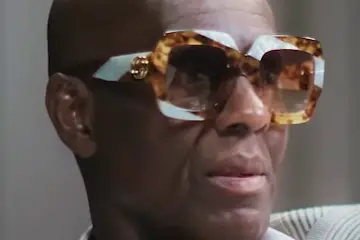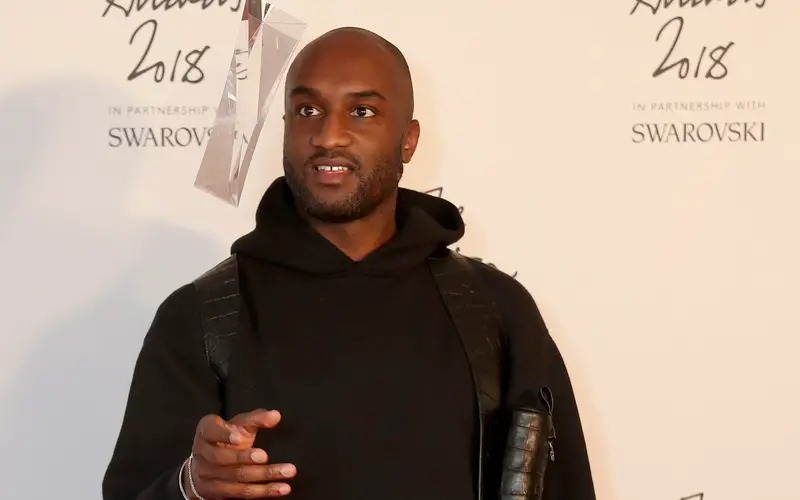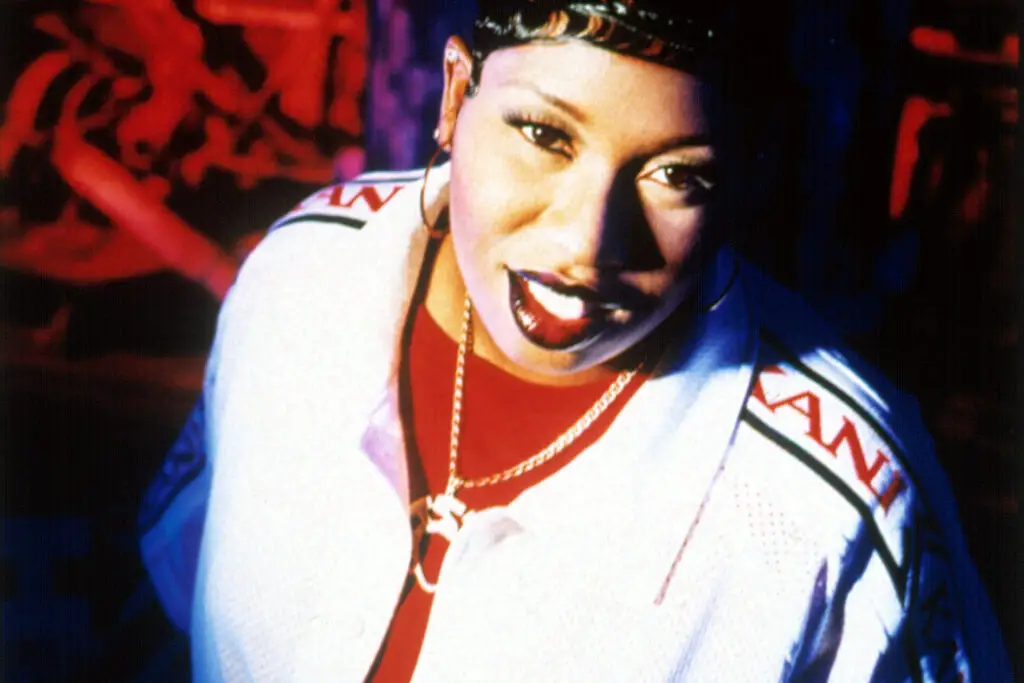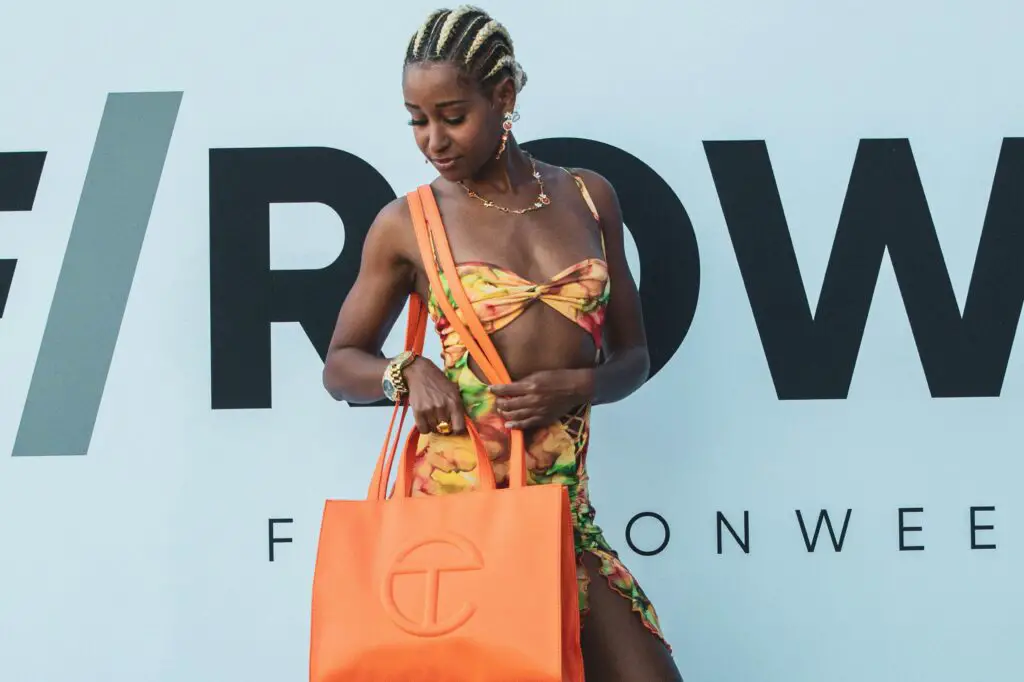1. Dapper Dan

Dapper Dan didn’t just design streetwear—he invented a whole new lane for it. In the ’80s, his Harlem boutique was the go-to spot for hip-hop legends, athletes, and anyone who wanted luxury with an edge. He took high-end brands like Gucci and Louis Vuitton and remixed them into bold, oversized tracksuits and jackets that turned heads. His designs became a symbol of status in hip-hop, worn by artists like LL Cool J, Big Daddy Kane, and even Mike Tyson. The brands he repurposed weren’t fans at first, shutting down his boutique in 1992. But culture had already crowned him a legend, and his influence never faded says CFDA.
Fast forward to today, and those same luxury brands that once dismissed him are now working with him. In 2017, Gucci tapped Dapper Dan for an official collaboration, leading to his own boutique backed by the fashion house. His signature style—monogram-heavy designs with flashy, oversized silhouettes—has never gone out of style. More than just a designer, he’s a pioneer who merged hip-hop culture with high fashion before it was mainstream. The world finally caught up to what Harlem knew all along: Dapper Dan is in a league of his own.
2. Virgil Abloh

Virgil Abloh changed the game when he made streetwear a major player in high fashion. As the founder of Off-White, he blended bold graphics, industrial aesthetics, and ironic quotation marks into pieces that felt both high-end and effortlessly cool. Before launching Off-White, he interned at Fendi alongside Kanye West, which led to collaborations with brands like Nike and Louis Vuitton. His “The Ten” collection with Nike reworked classic sneakers like the Air Jordan 1 and Air Presto, making them some of the most coveted kicks ever. Every sneaker drop felt like an event, selling out within minutes explains Refinery29.
In 2018, he became the first Black artistic director of Louis Vuitton’s menswear, a groundbreaking moment for both fashion and streetwear. He blurred the lines between luxury and everyday wear, proving that a hoodie could be just as prestigious as a tailored suit. His influence stretched far beyond clothing—he was a DJ, an architect, and a visionary who saw fashion as a cultural dialogue. Even after his passing in 2021, his impact remains undeniable. The world may have lost Virgil, but his designs and vision continue to inspire new generations.
3. Karl Kani

Karl Kani turned his love for hip-hop and fashion into one of the most influential streetwear brands of the ’90s. Growing up in Brooklyn, he started designing clothes as a teenager, inspired by the oversized fits and bold colors of the era. In 1989, he moved to Los Angeles and launched Karl Kani, creating styles that spoke directly to the hip-hop community. His baggy jeans, logo-heavy designs, and vibrant jackets became instant staples, worn by legends like Tupac, Biggie, and Aaliyah. Unlike high-end designers who ignored hip-hop, Kani embraced it, making clothes for the culture rather than just selling to it adds Forbes.
What made Karl Kani different was his ability to mix luxury with street style before it was even a trend. He was one of the first Black designers to put his name on his clothing, turning his brand into a status symbol. In the ‘90s, his designs dominated music videos and magazine covers, proving that hip-hop had a place in fashion. Even today, his legacy continues, with modern artists and celebrities still rocking his classic pieces. Kani’s motto, “Live your dream,” wasn’t just a slogan—it was his story, and he paved the way for countless designers who followed.
4. Telfar Clemens

Telfar Clemens took luxury fashion and flipped the script, proving that exclusivity doesn’t have to mean unattainable. His brand, Telfar, became a cultural phenomenon with the now-iconic Shopping Bag, known as the “Bushwick Birkin.” What set him apart was his mission—fashion for everyone, not just the elite. Instead of selling limited-edition drops at sky-high prices, he introduced the Bag Security Program, letting people preorder without the resale madness. His unisex designs challenged outdated fashion norms, making inclusivity the center of his brand shares the New York Times.
Telfar’s influence goes far beyond just bags—he’s redefining what it means to be a designer in today’s world. His collections merge comfort and elegance, blending streetwear and luxury without compromising his vision. Beyoncé gave his brand a major co-sign when she name-dropped Telfar in “Summer Renaissance,” but his community-first approach had already made him a favorite. In an industry obsessed with gatekeeping, he built a brand that welcomes everyone. Telfar’s motto says it all: “Not for you—for everyone.”
